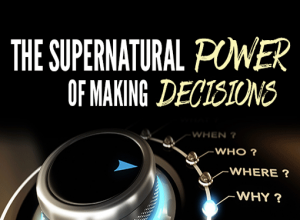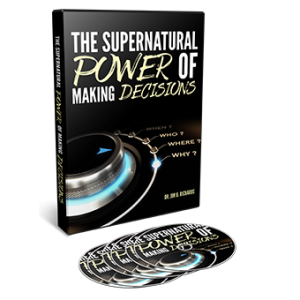 The Bible points out that we have a conscience as well as the necessity to avoid violating our conscience. The English translates it as “dual knowledge,” i.e. “two sources of knowledge.” The Greek translation takes it even further to mean “to be aware, share knowledge and to see completely.”
The Bible points out that we have a conscience as well as the necessity to avoid violating our conscience. The English translates it as “dual knowledge,” i.e. “two sources of knowledge.” The Greek translation takes it even further to mean “to be aware, share knowledge and to see completely.”
We have two unique and different aspects of our being that share knowledge, our spirit and our soul. This is the source of dual knowledge. From your spirit the Word of God emerges bearing witness that you are righteous, sanctified, holy, loved and accepted. Those who develop the ability to listen to God in their heart hear this witness internally. We all have a second source of knowledge, i.e. our soul (which includes the mind.) Our mind gathers data externally based on our behavior, thoughts and interactions.
When there is conflict between who God says we are and who our actions say we are we no longer have a good conscience. A good conscience is one that is healthy, fertile ground capable of receiving the Word of God. A defiled, contaminated or polluted conscience means it cannot incubate the seed of God’s Word to bring forth fruit! A good conscience sustains a healthy self-worth while a defiled conscience destroys it. For more about creating a good conscience check out, The Supernatural Power of Making Decisions!
 The two aspects of the conscience are very likely the embodiment of the heart! John explains that when we do not walk in love our heart condemns us. Contrary to religion, God is not condemning you; your own heart is condemning you because your conscience is in conflict. John says when this happens we cannot receive our prayers. Religion says it is because God has withdrawn, but the Bible is clear that God is not withholding, we simply cannot grasp His promises and bring them forth in the polluted soil of our heart. Join me this week in CyberChurch and discover more about how to establish a healthy, fertile conscience and great self-worth!
The two aspects of the conscience are very likely the embodiment of the heart! John explains that when we do not walk in love our heart condemns us. Contrary to religion, God is not condemning you; your own heart is condemning you because your conscience is in conflict. John says when this happens we cannot receive our prayers. Religion says it is because God has withdrawn, but the Bible is clear that God is not withholding, we simply cannot grasp His promises and bring them forth in the polluted soil of our heart. Join me this week in CyberChurch and discover more about how to establish a healthy, fertile conscience and great self-worth!
